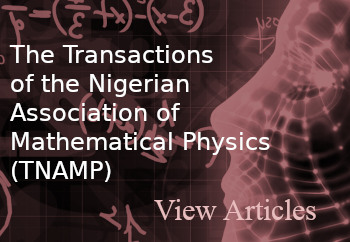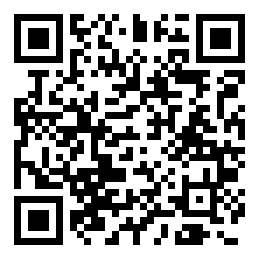EFFECTS OF GUIDED INQUIRY INSTRUCTIONAL STRATEGY ON STUDENTS’ ACHIEVEMENT AND RETENTION IN BASIC SCIENCE IN SECONDARY SCHOOLS
DOI:
https://doi.org/10.60787/jnamp-v66-312Keywords:
Guided Inquiry, instructional strategy, Achievement, Retention and GenderAbstract
The study investigated the effects of guided inquiry instructional strategy on students’ achievement and retention in Basic science in secondary schools. Six research questions and six null hypotheses guided the study. The design for the study was a quasi-experimental method. The population of the study comprised all the one thousand, one seven hundred and fifty basic science students of Model Schools in the Delta North Education Zone of Delta State. The sample for the study comprised One hundred and thirty four (134) secondary school Basic science students which was drawn through simple random sampling technique. This study was conducted in two Co-educational Secondary schools drawn for the study through simple random sampling. One of the Co-educational school was assigned to the treatment group and the other to the control group through the toss of coin. In each school intact classes were used for the study. The treatment group was taught Basic science concept using guided inquiry instructional strategy while the control group was taught using lecture (conventional) teaching method. The instrument used for data collection was Basic Science Achievement Test (BSAT) developed by the researcher. The reliability of the instrument was obtained using KR-20 and the reliability index yielded of 0.96. Research questions were answered using mean and standard deviation while the hypotheses were tested using the Analysis of Co-variance (ANCOVA) at an alpha level of 0.05. The result revealed that guided inquiry instructional strategy is superior to the lecture teaching method in facilitating achievement and retention in Basic science. There was no significant interaction between gender and instructional method in students achievement and retention in Basic science. The researcher therefore, recommended that guided inquiry instructional strategy should be used in junior secondary school teaching and learning of Basic science and there is need for an urgent curriculum review to accommodate guided inquiry instructional strategy as a method of instruction in the teaching of Basic science in junior secondary school.
Downloads
References
Abdul R. I (2014) Restructuring science teaching in Nigerian tertiary institutions. American Journal of Educational Research. 2(11):1100-1103
Ada, N. A., & Okwu, E. J. (2001).Teachers’ awareness of the roles of improvised materials in science teaching. Journal of Education 3 (1 &2), 214 – 223.
[ Agboghoroma TE. (2014) Guided-inquiry instructional modes on students’ achievement in Integrated Science: A panacea for economic development of African States. The Intuition. 6(1):1-11.
Agboghoroma T. E. (2009). Interaction effects of instructional mode and school setting on students’ knowledge of integrated science. International Journal Science Research in Education 2(2): 67-75.
Agbola O.S & Oloyade, E.O (2007) Effect of project, inquiry, lecture and demonstration teaching method on academic achievement on senior secondary students in separation of mixture practical text. Educational Research and Review. 2(6) 215-225
[ Ajayi, V.O., & Ogbeba, J. (2017). Effect of gender on senior secondary chemistry students’ achievement in stoichiometry using hands-on activities. American Journal of Educational Research, 5(8), 839-842.
Akubuiro, I. M. (2016), Classroom Learning Environment as Predictor of students interest in Science Education in Senior Secondary Schools in Cross River State. Education for Today Journal of Faculty of Education University of Calabar, 12 (1), 195 – 201
Balaraba, M. (2016). Effects of psycho-social factors on the students’ academic achievement in Basic Science. Journal of Research in Science Teaching, 5(1), 234-240.
Bilesanmi-Awoderu, J. B. & Oludipe, D. I. (2012). Effectiveness of cooperative learning strategies on Nigerian junior secondary students’ academic achievement in basic science. British Journal of Education, Society and Behavioural Science, 2 (3), 307-325
BSEB (2016). Benue State examination board statistic unit reports on students’ achievement in Basic Science in zone B of Benue State. Makurdi: BSEB
Edokpayi JN and Suleiman MA.( 2011) Students integrated science achievement as predictor of later achievement in chemistry: A case study among selected secondary schools in Zaria Metropolis. Archives of Applied Science Research.;3(4):527-535.
Federal Government of Nigeria, (2004). National Policy on Education. Abuja NERDC
Godpower-Echie G, Sopuruchi I.( 2017)Influence of gender on interest and academic achievement of students’ in Integrated Science in Obio Akpor Local Government Area of Rivers State. European Scientific Journal.13(10):272-279.
Heeman, L. (2005). Correcting Misconception using Unrealistic Virtual Reality, Recent Research Development in Learning Technologies: School of Computer & Information Communication, Seowon University, Cheongju 361 – 742, Korea..
Joda, F. M. (2014), Effects of guided inquiry, Attitude and interest on Nomadic Pupils Academic Achievement and Retention in Basic Science and Technology in Adamawa State Nigeria. Unpublished Ph.D. dissertation. University of Calabar.
Joda F.M & Mohammed. A.A (2017) effect of guided – inquiry teaching method on senior secondary School biology students’ academic achievement and retention in Yola education zone, Adamawa state, Nigeria. Multidisplinary Journal of Science, Technology and Vocational Education
Kundu, C.L & Tutoo, N.N (2002). Educational Psychology. Sterling Publishers: New Delhi.
Kurumeh M.S 2012 Improving Students’ Retention in Junior Secondary School Statistics using the Ethno-mathematics Teaching Approach in Obi and Oju Local Government Areas of Benue State, Nigeria Greener Journal of Educational Research Vol. 2 (3), pp. 054-062
Kurumeh MS, Jimin N, Mohammed AS. (2012) Enhancing senior secondary students’achievement in algebra using inquiry method of teaching in Onitsha educational zone of Anambra State, Nigeria. Journal of Emerging Trends in Educational Research and Policy Studies.3(6):863-868.
Muhammad, S.L (2011). Effects of Inquiry Teaching Method on Academic Achievement, Retention and Attitudes towards Chemistry among Diploma Students of Kano State Polytechnic. An unpublished M.Ed. Dissertation ABU Zaria.
NECO (2016). Registrar and Chief Executive Examiner’s reports for NECO:BECE. Minna: NECO.
Nkwo, N.I (2003). Effects of Guided Inquiry and Demonstration Methods on Secondary School Students’ Acquisition of Process Skill in Physics. An Unpublished M.Sc (Ed.) thesis, University of Uyo, Uyo.
Nwagbo, C. R., (2006).Effects of two teaching methods on the Achievement and attitude to Biology of students of Different levels of Scientifics literacy .International Journal of Educational Research.45, 216 – 229.
Nwogu, E. (2010). An inquiry into the major difficulties expressed / exhibited by junior secondary school students in solving problems involving angles. Unpublished BSc (Education/Mathematics) Project, Department of Science Education, University of Nigeria, Nsukka
Nwosu, B. O. (2011). Effect of instructional scaffolding on the achievement of male and female students in financial accounting in Abakiliki Urban of Ebonyi State, Nigeria. Current Research Journal of Social Science. 3(2), 66-70.
Ogbeide I.J( 2013)Influence of gender, school location and students’ attitude on academic achievement in basic technology in Delta State unpublished Ph.D Thesis University of Nigeria Nssuka
Ogundola I.P (2014) Effect of inquiry techniques on interest of technical college students in auto mechanic in Nigeria. Journal of Research and Method in Education(JOSR-JRME)4(2).53-60
Ogunkola J. B and Bilesanmi – Awoderu., (2000) Effects of Laboratory and lecture methods on students’ Achievement in Biology. African Journal of Education, 5, (2): 247-260.
Olibie E.I & Ezeoba K.O (2013) Effects of Guided Inquiry Method on SecondarySchool Students’ Performance in SocialStudies Curriculum in Anambra State, Nigeria. British Journal of Education, Society &Behavioural Science3(3): 206-222.
Oludipe, D. I. (2012). Gender difference in Nigerian Junior Secondary Students’ academic achievement in Basic science. Journal of Educational and Social Research,2 (1), 93-99.
Omwirhirien, E.M (2015) Enhancing academic achievement and retention in senior secondary school chemistry through discussion and lecture methods, a case study of some selected secondary school in Gboko, Benue state Nigeria. Journal of education and Practice. 6(21), 155-164
Opara, J. A. (2011). Inquiry Method and Student Academic Achievement in Biology: Lessons and Policy Implications. American-Eurasian Journal of Scientific Research, 6 (1), 28-31.
Opara, J.A & Oguzor, S.N (2011) Inquiry instructional method and the school science curriculum. Current Research Journal of Social Sciences. 3(3) 188-198
Osuafor, A. & Okonkwo, I. (2013). Influence of family background on academic achievement of secondary school Biology students in Anambra State. African Research Review. An International Multidisciplinary Journal, 7(3), 156 – 167
Owooye, J.S. & Yara, P.O. (2010). School location and academic achievement of secondary school students in Ekiti State, Nigeria. Retrieved from http://www.ccsenet.org/ass, 7(5), 170-175.
Scrivener J (2005) Learning teaching. Oxford; Macmillan.
Schneider, R.M, Krajick,J, Mars, R.W , & Soloway, E (2005) Performance of students in project- based science classrooms on a national measure of science achievement. Journal of research in science teaching, 39(5), 410-422
Sola, A.O. and Ojo, O.E. (2007). Effects of Project, Inquiry and Lecture-Demonstration Teaching Methods on Senior Secondary Students’ Achievement in Separation of Mixtures Practical Test. Educational Research and Review 2(6): 124-132 .
Stumm, V., Sophie, D., Hell, M. & Tomas (2011). The Hungry mind: Intellectual Curiosity is the Third Pillar of Academic performance Perspective on Psychological Science 6(6), 574 – 588S
Trustees Princeton University (2013). Overview Princeton University integrated science, [41] Retrieved 2019 September 11, www.princeton.edu/integratedscience/
Tumwebaze, P. ( 2016). Performance: Why distance to school matters. The New Times. Retrieved from http://www.newtimes.co.rw.
West African Examination Council (WEAC) 2016. WAEC Chief Examiners Report. Lagos: WAEC Technical Report.
Downloads
Published
Issue
Section
License
Copyright (c) 2024 The Journals of the Nigerian Association of Mathematical Physics

This work is licensed under a Creative Commons Attribution-NonCommercial-ShareAlike 4.0 International License.




